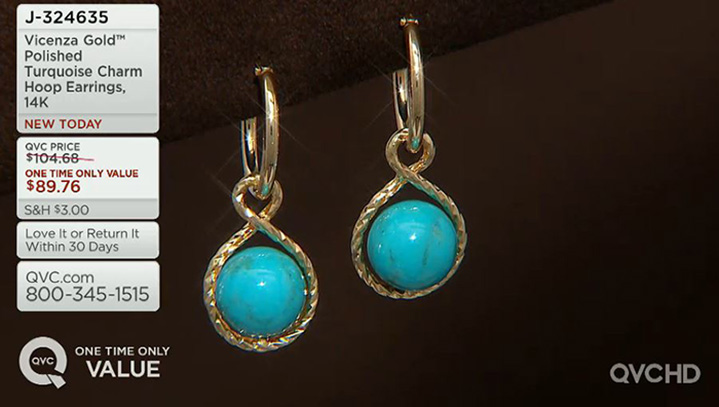Zulily sale shows folly of non-expedited e-commerce delivery
Reynolds Hutchins, Associate Editor | Aug 18, 2015 5:49PM EDT
 Earrings for sale on QVC.
Earrings for sale on QVC.
The same logistics strategy that propelled U.S. online retailer Zulily to greatness has led to its defeat, according to industry analysts, culminating this week in the company’s sale to a retail giant with a markedly different idea of how supply chains are run.
The company, known for its flash sales on women’s and children’s apparel, once prided itself on its unique supply chain model, one that allowed the retailer to offer discounts well below its competitors. Its recent acquisition, however, only serves to show what more and more retailers are realizing: if they plan to compete with Amazon, they’ll have to meet the speedy delivery expectations the industry’s top performer has set.
Liberty Interactive, parent company of shopping network QVC, announced Monday that it planned to acquire Zulily in a $2.4 billion stock-and-cash deal. Liberty said in a statement it will acquire all outstanding Zulily shares at $18.75 apiece.
It’s a significant markdown from just last September when the company’s stock hit a 52-week high at $39.10. And it’s a far cry from where industry insiders thought the company would be at the time of Zulily’s IPO just two years ago, what Dave Spector, a former e-commerce investor at Sequoia Capital, called a “watershed moment” for e-commerce.
Founded in 2010, Zulily has always had a different approach to online retail. The company was able to offer merchandise at a fraction of the cost of other retailers because of its unique supply chain model.
The company did not hold any inventory itself and offered no returns. Foregoing warehouses and distribution centers, merchandise was not stored ahead of flash sales. Instead purchased goods were shipped from suppliers to Zulily to sort and deliver afterward.
The model saved Zulily — and therefore the end consumer — money. It also meant that it could take longer than two weeks for those end consumers to ever receive an order.
Analysts have said that Zulily’s strategy began to work against the company, as competition increased from other e-commerce retailers such as Boston-based Rue La La and, of course, Amazon. The latter, with an extensive network of distribution centers and warehouses, continues to up its game: not only offering next-day delivery, but even same-day delivery now for certain goods and customers.
In January, Zulily’s share price fell to $18.53 and CEO Darrell Cavens was discussing plans with Forbesmagazine to shutter the company’s U.K. operations. Two months later, the company was forsaking its original supply chain model and launching its first warehouses and distribution centers.
The recent acquisition almost certainly spells the end for Zulily’s exceptional logistics model, analysts said this week. Liberty’s QVC supports a supply chain much more in line with major retailers, with million-square-foot distribution centers nationwide and options for speedy delivery.
"There is some work to do to get Zulily back on track in growth terms," Neil Saunders, chief executive of research firm Conlumino, told Reuters. "QVC will need to oversee that work if it's to get its investment to pay off."
Despite the changes analysts promise lie ahead for Zulily, QVC executives have promised some things will remain the same, specifically the one thing that attracted Liberty to the company in the first place: its audience.
Zulily’s focus on women’s and children’s merchandise means its customer base is significantly younger than QVC’s base of home shoppers.
Reuters reported QVC CEO Michael A. George noted in a recent conference call that only 6 percent of Zulily’s active customers have made a purchase on QVC.
“QVC and Zulily are tremendous businesses with strong management teams,” George said. “And we want each to remain focused on building their brands and realizing their full potential while we collaborate on those high-value opportunities that will make our combined companies under Liberty much stronger than either could be on its own.”
Among the other factors that won’t be changed: Zulily’s Cavens will stay on as CEO and the company headquarters will remain in Seattle, according to the Associated Press.
No comments:
Post a Comment